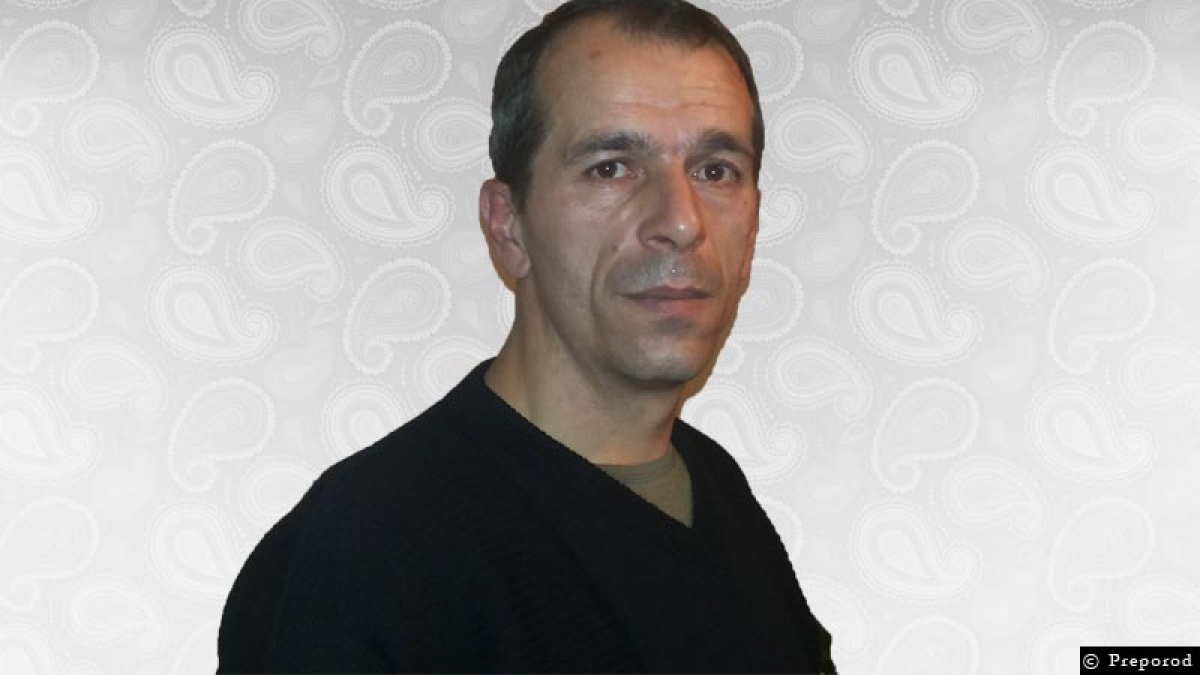He kicked me and said, "You're coming with me!"
My name is Amela Mehmedović-Handanović, I am a wife and a mother of three children. In Potočari, under the cover and protection of UN forces, my father Mustafa and two of my uncles, Ibrahim and Arif, were killed. My cousin Adem was also killed in Srebrenica, in the prime of his youth. He was not fortunate enough to survive the Death March like my older brothers Saib and Sakib, of whom I am especially proud.
My life in Srebrenica from 1993 to 1995 was a life between hell and death. On July 11, 1995, I was 18 years old. I had been living in Potočari since March 1993 with my father, mother, and three brothers, of whom the eldest, Saib, was 23, Sakib was 21, and the youngest, Samir, was just under seven years old. After the Serbian army entered Srebrenica and Potočari, my older brothers fled through the forest, while I, along with my mother, father, and younger brother, headed to the UN base hoping for protection. I was near the fence and heard Ratko Mladić saying that those within the UN base compound were guaranteed their lives. However, I became fearful for our safety, especially for my father, when I saw the soldiers of the Dutch battalion removing their uniforms and helmets and handing them to the Serbs, who then put them on and thus, under the guise of UN protectors, entered among the frightened people, primarily targeting women, children, and the elderly. I also witnessed the joint celebration with singing and alcohol between the Dutch soldiers and the Chetniks who were seeing them off. Seeing all this, I was very afraid, especially for my father and two of his brothers, my uncles, who due to health reasons had not gone through the forest with the other men.
We were thirsty and exhausted from fear and the scorching sun when we heard an announcement over the loudspeaker that trucks and buses would soon arrive to deport women and children to Kladanj. As we waited, squeezed between some trailers for the buses to arrive, a Chetnik entered our midst and grabbed my friend Samir from the village of Peći, who was near me. Seeing him, he roughly seized him and pulled him away, saying, "I've been looking for you." At this, Samir's mother began to cry and tried to pull her son from the hands of the Serbian soldiers, while we cried and screamed, begging them to let him go. The murderer snatched him away and took him. We were powerless.
The buses arrived. I told my mother we had to board quickly. I took my younger brother Samir as if he were my child and boarded the bus, helping my mother to get on before me. The bus was packed with exhausted women and children. I held my brother tightly and sat under one of the seats to protect him. The bus headed towards Bratunac. At a crossroads in Bratunac, we were again met by Chetniks and a large number of Serbian civilians who threw things at the bus trying to stop it, but the driver continued on and did not let anyone else board. Due to fear, heat, and thirst, I fainted and remember nothing until the moment when in Konjević-Polje, the bus was stopped again, and an armed Serbian soldier entered, walking between the rows in the bus and saying, "Let's see what we have here for me." He came up to me and kicked me, saying, "You're coming with me." My mother reacted like the other women, telling him not to touch a young mother with a child, referring to my brother whom I was still clutching tightly. Other women also screamed and pleaded for him not to take me. Then, the bus driver stood up and said to the enraged Chetnik, "You'll have to kill me first, and then you can do whatever you want on this bus." At these words, the Serbian soldier exited, and the bus driver closed the door, stepped out, and soon returned with a few bottles of water for us to refresh ourselves. He told us he would not stop for anyone anymore and that we were safe until we reached Tišća, where we were to be dropped off. He cautioned us that upon exiting the bus, we should head straight down the main road, not turning anywhere until we reached the demarcation line. At the spot where we disembarked from the bus, we were once again met by Serbian soldiers - Chetniks who demanded money and gold, cursed at us, and insulted us. They took a girl from Cerska.
Somehow, carrying my brother in my arms, I managed to pass unnoticed and thus made it to the line where our soldiers were waiting for us. They received us and continued to deport us to the Dubrava airport, where I reunited with the rest of my family who had left Srebrenica in April 1993.
I regularly take my children to Srebrenica on July 11th every year. I recommend that everyone visit and learn from it, and I pray to God that what happened in Srebrenica never happens to anyone again.






